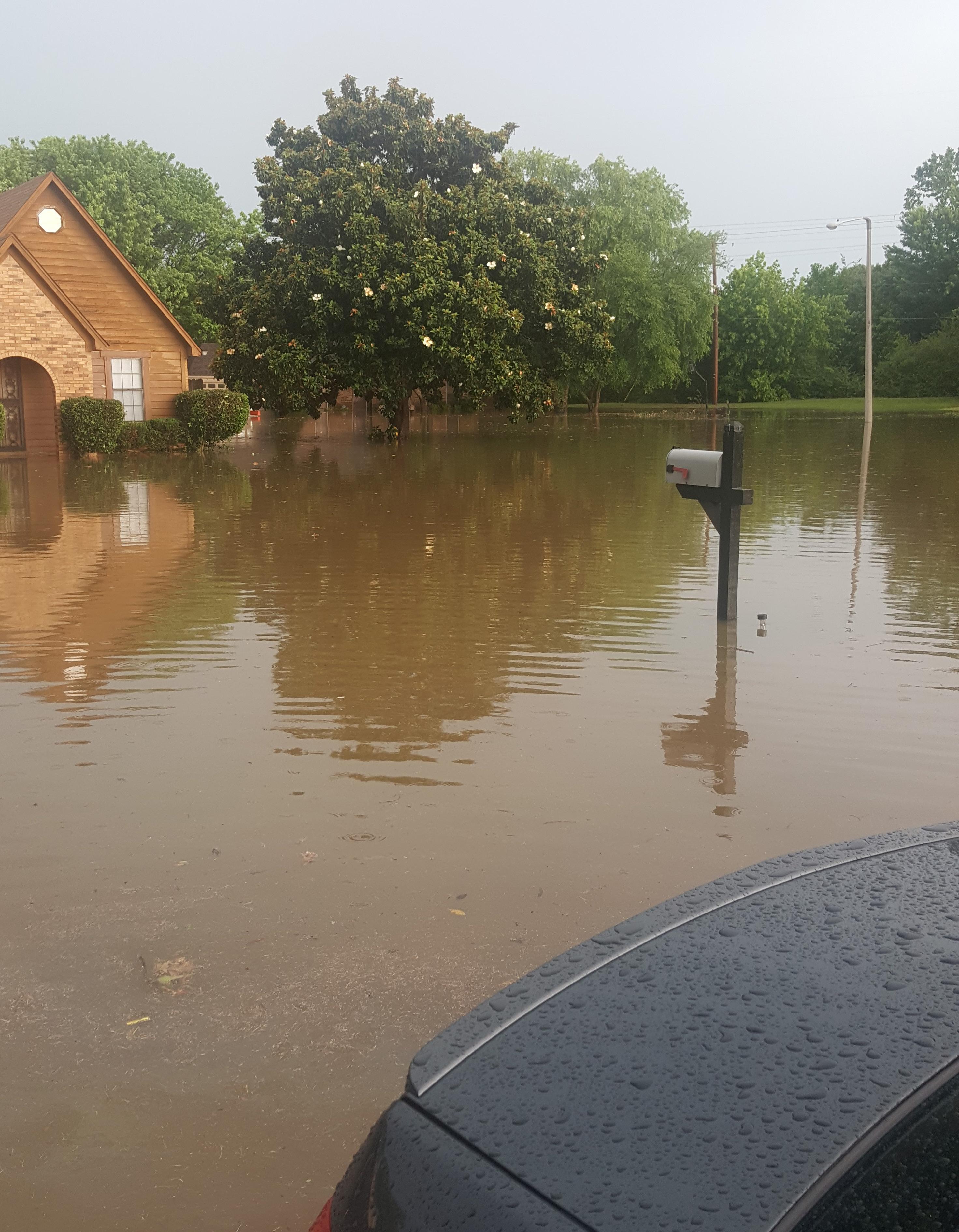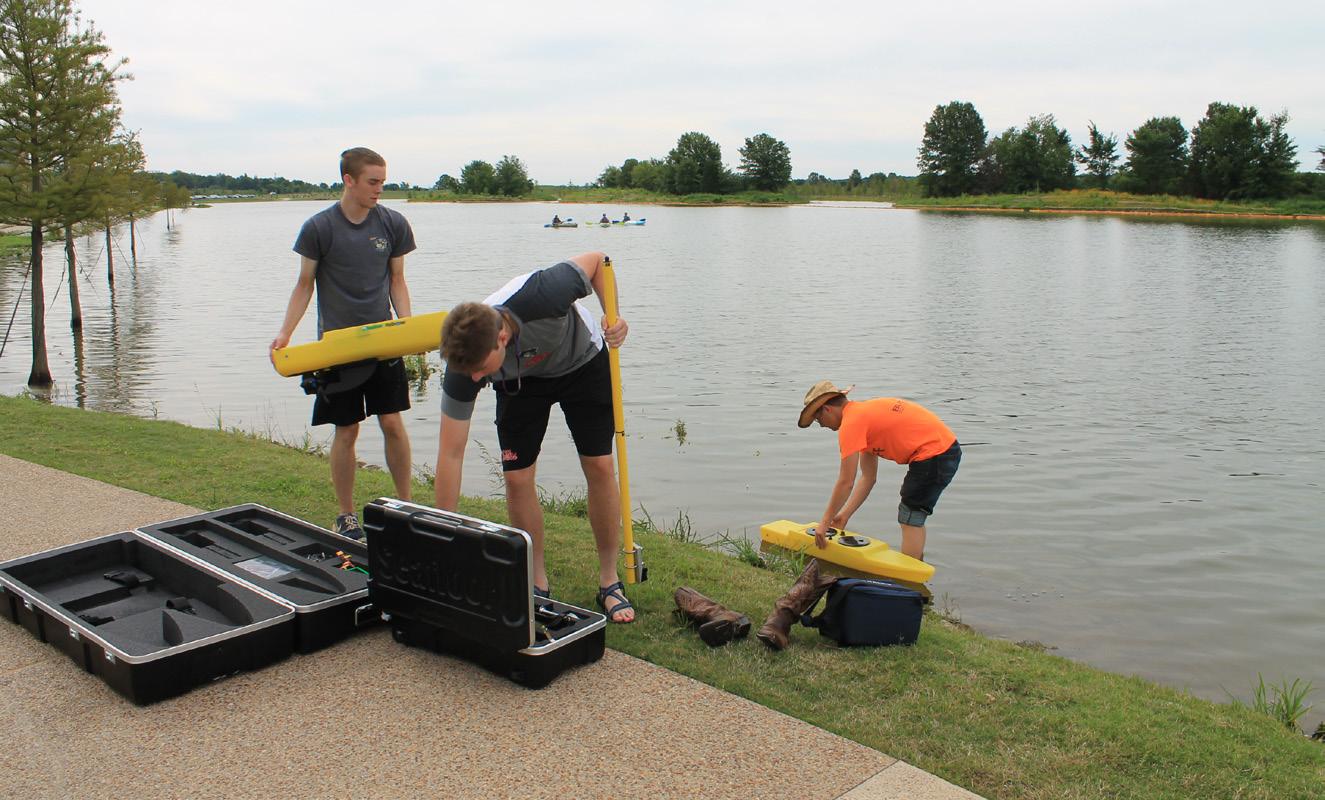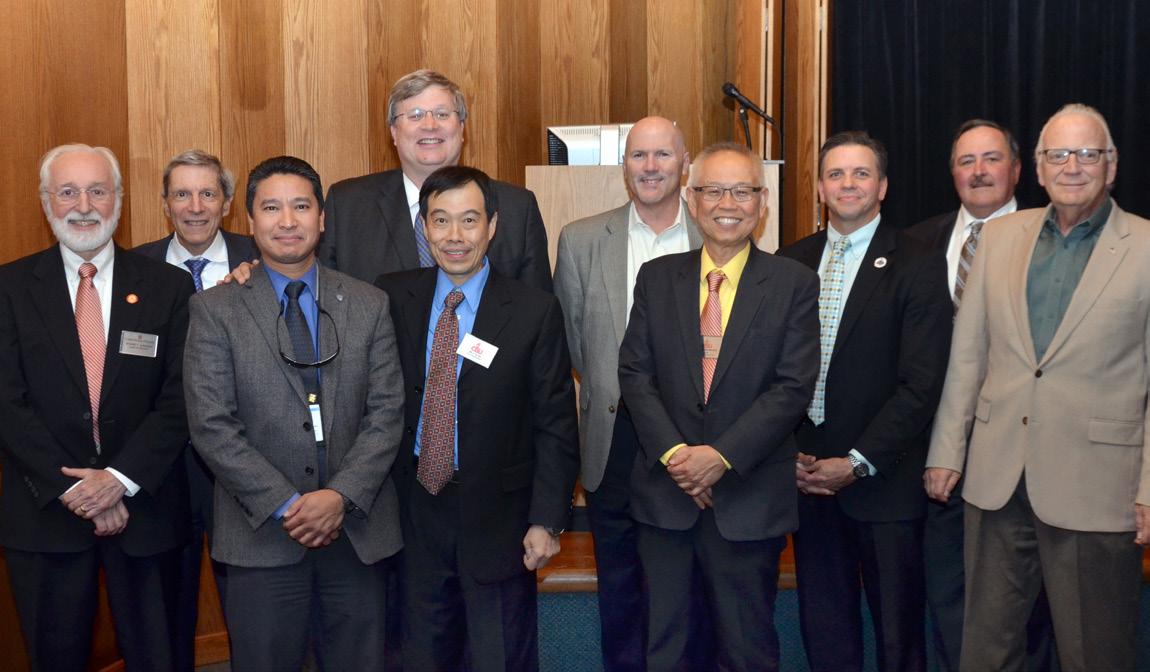
6 minute read
CBU: Leaders in Sustainability
BY ELIZABETH MOORS JODICE
Christian Brothers University (CBU) in Memphis, Tennessee, is at the forefront in developing solutions to address environmental sustainability in its community. In October 2017, CBU launched the Surface Water Institute (SWI) as part of its Gadomski School of Engineering. The SWI is an inter-agency research center that tackles complex surface water issues facing the Memphis area.
Advertisement

One task of the Surface Water Institute is to develop solutions to prevent flooding to homes and businesses, such as the flooding that happened in 2016 following several rounds of intense rain.
Courtesy City of Memphis
The Lasallian Reflection for the theme for 2017-2018 liturgical year, “Lasallians Without Limits,” highlights the importance of sustainable communities in terms of environmental, economic and social sustainability. Through the SWI, CBU is bringing to life several calls found in the Lasallian Reflection, including the need to “think beyond the borders of our immediate surroundings and analyse planet Earth as the common home that we must protect” (Lasallian Reflection 3, page 6).
Branching out from the CBU campus, the SWI partners with government agencies and firms in the private sector. Dr. L. Yu (Louie) Lin, a CBU civil and environmental engineering professor, serves as the SWI director. Lin described the major tasks of the SWI as facilitating and coordinating the various agencies, bringing them together to discuss needs, and working on joint projects.
“Through this kind of process, we can help the City of Memphis,” said Lin. “We will help this region to resolve a lot of the surface water issues.”
The Memphis area has a history of surface water issues, and it struggles with inadequate handling of storm water runoff, which causes flooding. With its launch, the SWI began two projects to help address this critical issue: a drainage plan study with the City of Memphis and a floodplain mapping, response and education effort with the U.S. Army Corps of Engineers (USACE) to serve the community of Arlington, Tennessee, which experienced devastating flash flooding in June 2016.
The drainage study continues work that the City of Memphis started in 2014, which involved 18 basin studies to identify flood-prone areas. Chee Chew, senior design engineer for the City of Memphis, said the SWI used the results of the drainage study to identify the critical flooding area. The SWI is helping the City of Memphis to determine alternatives and/ or to prioritize the alternatives for the Drainage Capital Improvement Plan.

Christian Brothers University students assemble a HydroDrone for work with the Surface Water Institute.
Courtesy Christian Brothers University
“Over the years, CBU has been recognized as the leader by the engineering community in the City of Memphis and in this region for matters related to water resources,” said Chew.
David Berretta, chief of the Hydraulics and Hydrology Branch for the Memphis District Corps of Engineers, agrees with Chew’s assessment of CBU’s leadership.
“Throughout its history, CBU has been a recognized leader in the engineering community for creativity and innovation,” said Berretta, who is working with the SWI on the USACE project focused on the Arlington floodplain and serves on the Science and Water Resources Advisory Board.
The project will give the town information to help leaders properly manage roads and public structures in areas where the storm drainage system could flood. In the 2016 flood, water reached homes and businesses in higher elevations that had never previously flooded and lacked flood insurance.

Pictured at the launch of the Surface Water Institute (from left): Dick Gadomski, Dr. John Smarrelli (CBU President), Manny Belen (City of Memphis, Chief Engineer), Memphis Mayor Jim Strickland, Dr. Louie Lin (SWI Director), Steve Dunavant (CBU Board Chairman), Dr. Siripong Malasri (CBU Dean of Engineering), Robert Knecht (City of Memphis, Public Works Director), David Berretta (U.S. Army Corps of Engineers), and Hugh Teaford (City of Memphis, City Civil Design Engineer).
Courtesy Christian Brothers University
“Education of the public about the impacts of flash flooding from high intensity, short duration storm events, like what occurred in June 2016, and options to mitigate the risk from such events, is the goal of the project,” explained Berretta. “Several public meetings supported by Corps modeling, NWS [National Weather Service] discussion of climatological changes (more frequent rain events), and flood insurance education will reduce the financial risk these storm events pose to the community.”
In addition to benefiting the larger community, these projects also serve as hands-on learning experiences for CBU students. The projects help students put their education into practice by collaborating with and learning from professionals to solve real-life issues that impact their neighbors. The partnerships also lead to internships and jobs for students and opportunities for faculty, as well.

The Surface Water Institute works to address issues to prevent flooding in Memphis and the surrounding area.
Courtesy City of Memphis
“We have a curriculum talking about sustainability,” said Lin. “It’s not only lectures, but now we’re putting it onto action. We provide more and more support to the different projects.”
Currently, the SWI is working on proposals for several new projects, including efforts to address watershed issues, illegal dumping and construction site runoff.
The establishment of the SWI is not the first time CBU has partnered with the community to address water issues. As CBU President Dr. John Smarrelli Jr., explained, the university partnered with the City of Memphis in 2009 to design and build an innovative storm water detention pond under its soccer field on campus.
“It was the first time that anyone had tried to make a dual-use facility for storm water in Memphis. Because of its success, the city has moved forward with other such projects. CBU is proud to have been an original part of this creative solution,” Smarrelli said. “The Surface Water Institute is one of the latest examples of CBU stepping up to provide assistance, expertise and support to our community and to its local government."
Jim Belles, meteorologist in charge of the National Oceanic and Atmospheric Administration’s National Weather Service office in Memphis and member of the Science and Water Resource Advisory Board, hopes the SWI can create a “water resource success story for Memphis.”
“Our vision is about collectively applying our knowledge base to help solve the various water resource problems that the Memphis community faces,” Belles said. “The can-do attitude of CBU is our biggest asset. It’s an essential spirit that allows the board members to come together to help solve our water resources challenges.”
That collaboration mirrors a call outlined in the Lasallian Reflection, which encourages Lasallians to create sustainable communities by “facing challenges not with fragmented approaches but with coordinated solutions, and doing this with a broad perspective” (page 6).
With the momentum behind the SWI and its upcoming projects, CBU will continue to find innovative ways to collaborate and respond to that call.
“There are a lot of surface water issues,” said Lin. “We will have the tremendous opportunity to work with the different agencies and organizations to solve the surface water issues.”
Elizabeth Moors Jodice is the director of communications at Christian Brothers Conference. She can be reached at ejodice@cbconf.org.





